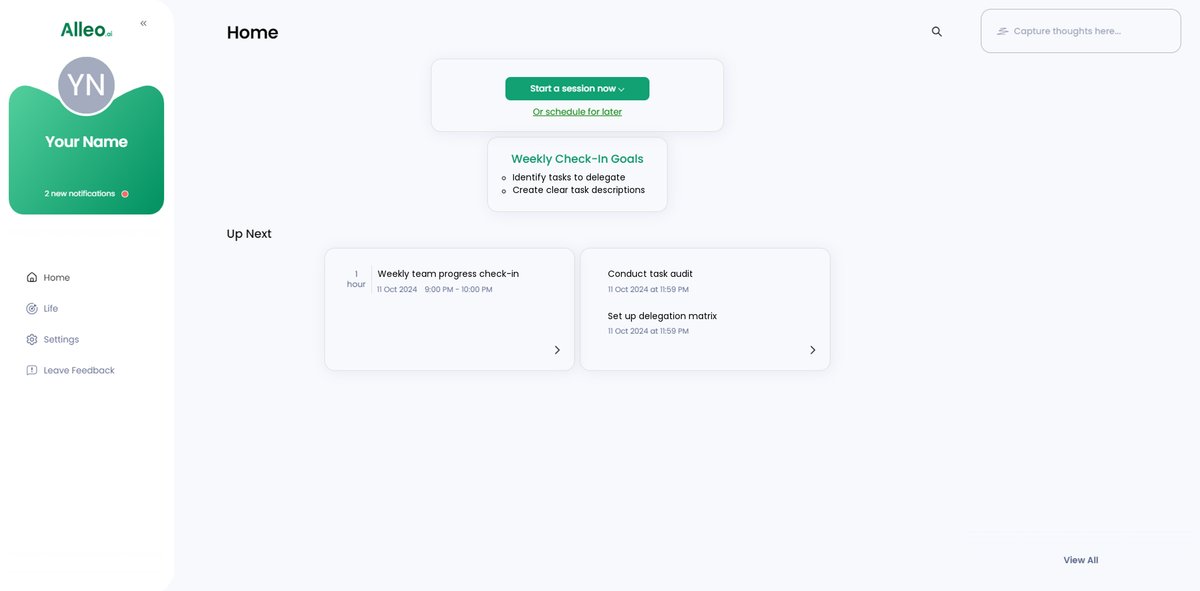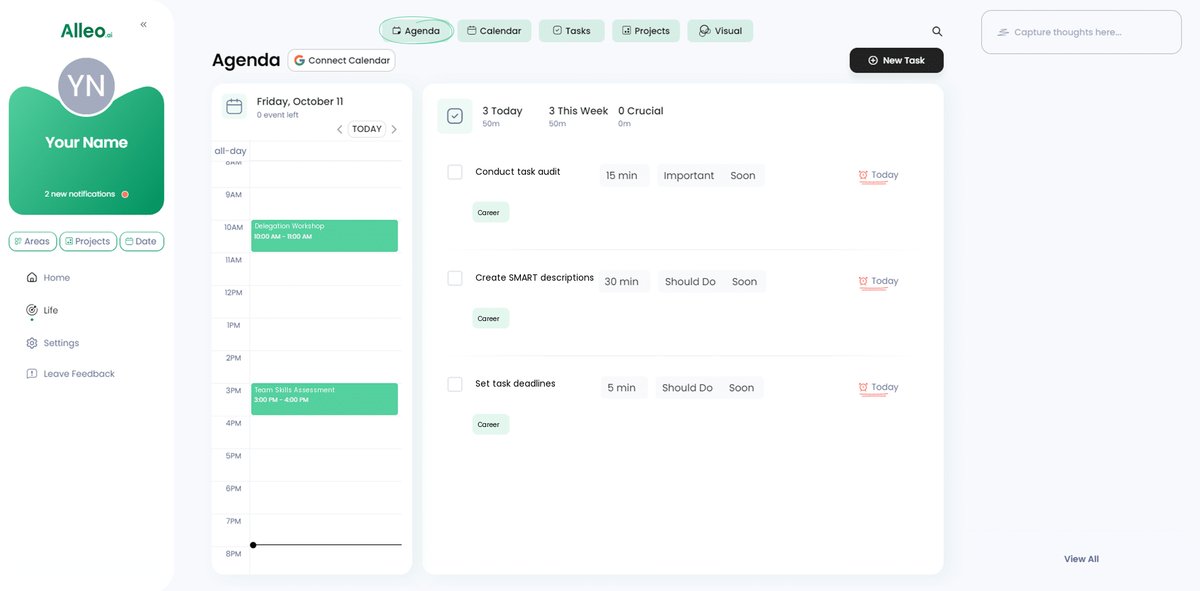How to Delegate Tasks Effectively: 5 Essential Strategies for Busy Managers
Are you struggling to juggle countless tasks while trying to maintain quality and meet deadlines? Effective task delegation for managers can be the solution you need.
As a life coach, I’ve helped many professionals navigate these challenges. In my experience, clear and effective task delegation strategies can transform your workflow and improve team productivity.
In this article, you’ll discover actionable strategies to delegate tasks effectively, enabling you to focus on what truly matters. We’ll explore identifying key tasks, creating detailed descriptions, and matching tasks to team strengths – all essential aspects of effective leadership skills. You’ll learn how to overcome micromanagement tendencies and master delegation best practices.
Let’s dive into the world of effective task delegation for managers and employee empowerment techniques.

Understanding Delegation Challenges and Their Impact
Effective task delegation for managers often sounds simpler than it is. Many clients initially struggle with miscommunication and unclear expectations, leading to frustration.
These issues can quickly snowball, causing missed deadlines and subpar work.
In my experience, inadequate delegation breeds manager burnout. Without clear task assignments, managers end up overwhelmed with tasks they shouldn’t handle, hindering time management for managers.
This not only affects the manager but also stifles team growth and productivity improvement.
Moreover, ineffective delegation leads to missed opportunities for team development. When tasks aren’t matched to team members’ strengths, everyone loses, impacting effective leadership skills.
Ensuring that tasks are delegated effectively is crucial for maintaining a healthy and productive work environment and overcoming micromanagement tendencies.
Let’s address these issues head-on and explore delegation best practices.

A Strategic Approach to Delegation for Busy Managers
To tackle delegation challenges and implement effective task delegation for managers, focus on these key actions. Here are the main areas to direct your efforts for improving team productivity and prioritizing workload:
- Identify key tasks for delegation: Conduct a task audit to pinpoint tasks that can be delegated, a crucial step in time management for managers.
- Create clear, detailed task descriptions: Use the SMART goals framework to define tasks clearly, enhancing delegation best practices.
- Match tasks to team members’ strengths: Align tasks with team members’ expertise and career goals, an essential aspect of effective leadership skills.
- Set specific deadlines and checkpoints: Establish realistic deadlines and schedule regular check-ins, facilitating performance monitoring in delegation.
- Provide necessary resources and authority: Equip team members with the tools and decision-making power they need, employing employee empowerment techniques.
Let’s dive into these task delegation strategies!
1: Identify key tasks for delegation
Identifying key tasks for delegation is essential for effective workload management and a crucial aspect of effective task delegation for managers.
Actionable Steps:
- Conduct a task audit: Track your daily activities using a time-tracking tool to identify repetitive and low-priority tasks, improving time management for managers.
- Categorize tasks: Use the Eisenhower Matrix to prioritize workload, deciding which tasks to assign to team members based on their urgency and importance.
- Evaluate tasks: Match tasks with team members’ strengths and growth opportunities by creating a skills mapping template, enhancing team productivity improvement.
Explanation: Identifying tasks for delegation helps you focus on high-priority work and leverages your team’s strengths, a key aspect of effective leadership skills.
This ensures that tasks are completed efficiently and aligns with your overall objectives, supporting employee empowerment techniques.
Using tools like the Eisenhower Matrix can streamline this process and improve productivity, aiding in overcoming micromanagement tendencies.
Taking these steps will allow you to delegate more effectively and maintain a balanced workload, implementing delegation best practices for performance monitoring in delegation.

2: Create clear, detailed task descriptions
Creating clear, detailed task descriptions is crucial for effective task delegation for managers. It ensures that your team understands what is expected and can deliver quality results, improving team productivity.
Actionable Steps:
- Define tasks using SMART goals: Write tasks using the SMART framework to ensure they are Specific, Measurable, Achievable, Relevant, and Time-bound, which is essential for prioritizing workload.
- Provide context and background: Include the task’s objective, importance, and expected outcomes to give team members a clear understanding, supporting employee empowerment techniques.
- Outline necessary steps: Develop a checklist or step-by-step guide outlining the actions required to complete the task, a key aspect of delegation best practices.
Key elements of a well-defined task:
- Clear objectives and expectations
- Specific deliverables and deadlines
- Required resources and tools
- Success criteria and metrics
Explanation: Clear task descriptions prevent miscommunication and ensure everyone understands their responsibilities, which is crucial for effective leadership skills.
This approach aligns with the best practices in effective delegation by making tasks easier to follow and execute.
Providing context and detailed steps helps team members work efficiently and confidently, aiding in overcoming micromanagement tendencies.
By setting clear task descriptions, you’ll enable your team to perform at their best. This leads to higher productivity and better outcomes, enhancing overall time management for managers when assigning tasks to team members.

3: Match tasks to team members’ strengths
Matching tasks to team members’ strengths is crucial for maximizing efficiency and productivity in effective task delegation for managers.
Actionable Steps:
- Conduct a skills assessment: Evaluate your team members’ skills and strengths through surveys or assessments to improve team productivity.
- Hold one-on-one meetings: Discuss individual aspirations and career goals with each team member to align tasks accordingly, enhancing employee empowerment techniques.
- Use a task management tool: Visualize team members’ workload and availability to ensure balanced task distribution and effective prioritizing of workload.
Explanation: These task delegation strategies ensure tasks are aligned with team members’ strengths, leading to better performance and job satisfaction.
This approach aligns with industry best practices for effective delegation, ensuring tasks are completed efficiently and contributing to team growth.
By matching tasks to strengths, you foster a supportive and productive work environment, demonstrating effective leadership skills in delegation best practices.

4: Set specific deadlines and checkpoints
Setting specific deadlines and checkpoints is crucial for effective task delegation for managers, ensuring that tasks stay on track and are completed efficiently.
Actionable Steps:
- Establish realistic deadlines: Break tasks into smaller milestones with individual deadlines to manage progress in stages, a key aspect of time management for managers.
- Schedule regular check-ins: Set up weekly or bi-weekly meetings to review task progress and address any challenges that arise, an essential practice in performance monitoring in delegation.
- Provide constructive feedback: Use feedback sessions to discuss what’s working well and what needs improvement, adjusting deadlines if necessary, which is crucial for team productivity improvement.
Benefits of regular check-ins:
- Early identification of potential roadblocks
- Opportunity for timely guidance and support
- Increased accountability and motivation
Explanation: These steps help maintain momentum and ensure clarity on task progress, key components of effective leadership skills.
Regular check-ins and feedback align team efforts with project goals, preventing delays and supporting delegation best practices.
According to Score, consistent communication enhances productivity and team dynamics, making this approach essential for busy managers implementing task delegation strategies.
This structured approach to deadlines and checkpoints will keep your team on the right track, setting the stage for success in effective task delegation for managers.

5: Provide necessary resources and authority
Equipping your team with the right resources and authority ensures successful task completion, a crucial aspect of effective task delegation for managers.
Actionable Steps:
- Compile essential tools: Create a comprehensive list of software, documentation, and training materials required for tasks, supporting effective leadership skills.
- Delegate decision-making power: Use a Delegation of Authority Matrix to outline who can make specific decisions, a key strategy in employee empowerment techniques.
- Offer ongoing support: Pair team members with mentors or provide access to coaching sessions for guidance, enhancing team productivity improvement.
Explanation: These steps empower your team to work independently and confidently. Providing resources and authority boosts efficiency and morale, crucial for effective task delegation for managers.
According to Kissflow, effective delegation involves assigning tasks while retaining responsibility for outcomes. This approach cultivates a proactive and capable team, essential for time management for managers.
Key components of effective resource provision:
- Access to relevant information and data
- Adequate training and skill development
- Clear communication channels
By ensuring your team has what they need, you set the stage for success and growth, embodying delegation best practices and overcoming micromanagement tendencies.

Streamline Your Delegation Process with Alleo
We’ve explored the challenges of effective task delegation for managers and the steps to conquer them. But did you know you can work directly with Alleo to simplify this process and improve your team productivity?
Alleo, your AI life coach, offers personalized coaching to help busy managers delegate tasks more effectively. Setting up an account is easy and can help you master delegation best practices.
You start with a free 14-day trial, no credit card required. Once registered, Alleo guides you through creating a personalized delegation plan, focusing on time management for managers.
Alleo assists in identifying key tasks for delegation using AI-powered task analysis. It helps you craft detailed task descriptions with tailored templates, enhancing your effective leadership skills.
It matches tasks to team members’ strengths by analyzing their skills and availability, a crucial aspect of assigning tasks to team members. Alleo sets specific deadlines and checkpoints with automated reminders and progress tracking, aiding in prioritizing workload.
It provides necessary resources and authority by integrating with project management tools and offering decision-making guidelines, supporting employee empowerment techniques.
Alleo follows up on your progress, handles changes, and keeps you accountable through text and push notifications. This ensures you stay on track and achieve your delegation goals, overcoming micromanagement tendencies.
Ready to get started for free and improve your task delegation strategies?
Let me show you how!
Step 1: Sign In or Create Your Account
To start improving your delegation skills with Alleo, Log in to your account or create a new one to begin your free 14-day trial, no credit card required.

Step 2: Choose “Building better habits and routines”
Click on “Building better habits and routines” to start improving your delegation skills, as establishing consistent practices will help you effectively identify, assign, and manage tasks, addressing the delegation challenges discussed in the article.

Step 3: Select “Career” as Your Focus Area
Choose “Career” as your life area to focus on, as it directly addresses the delegation challenges discussed in the article, helping you streamline your work processes and boost your professional growth.

Step 4: Starting a coaching session
Begin your journey with Alleo by scheduling an initial intake session to discuss your delegation challenges and create a personalized action plan for improving your task management skills.

Step 5: Viewing and Managing Goals After the Session
After your coaching session, check the app’s home page to review and manage the delegation goals you discussed with Alleo, ensuring you stay on track with your task delegation strategy.

Step 6: Adding events to your calendar or app
Use Alleo’s calendar and task features to schedule delegation checkpoints and track your progress, ensuring you stay on top of your newly delegated tasks and team performance.

Wrapping Up: Your Path to Effective Delegation
Effective task delegation for managers is your key to reducing stress and boosting productivity. By following the actionable steps we’ve discussed, you can transform your workflow and enhance team productivity improvement.
Remember, delegation best practices are all about clear communication, matching tasks to strengths, and providing the right resources. These task delegation strategies will help you and your team succeed.
I’ve seen firsthand how these employee empowerment techniques can make a difference. Now, it’s your turn to implement them and improve your leadership skills.
Don’t forget, Alleo can support you every step of the way in overcoming micromanagement tendencies. Try Alleo for free and see how it can streamline your delegation process and assist with performance monitoring in delegation.
Ready to delegate with confidence and master effective task delegation for managers? Let’s make it happen!